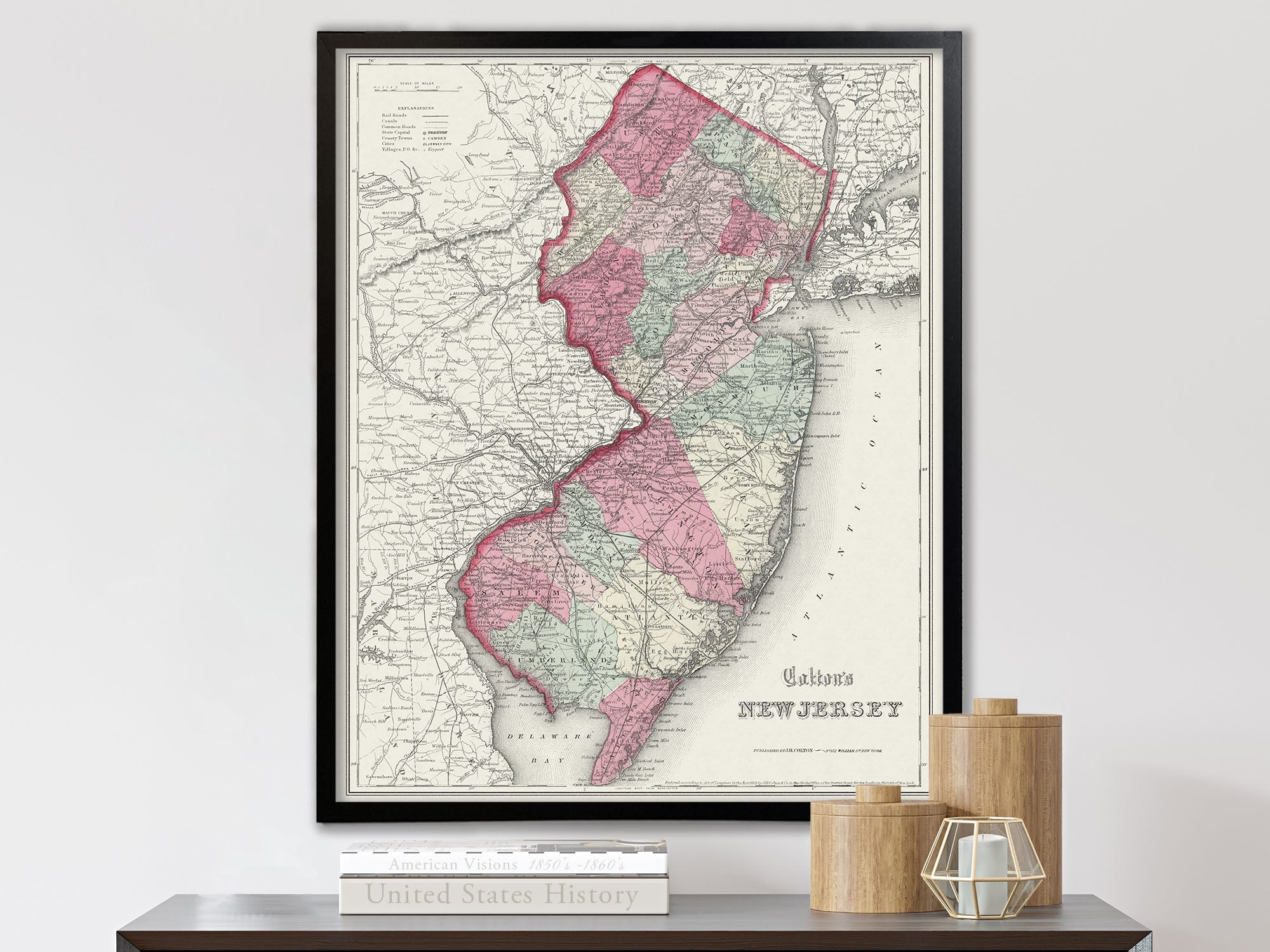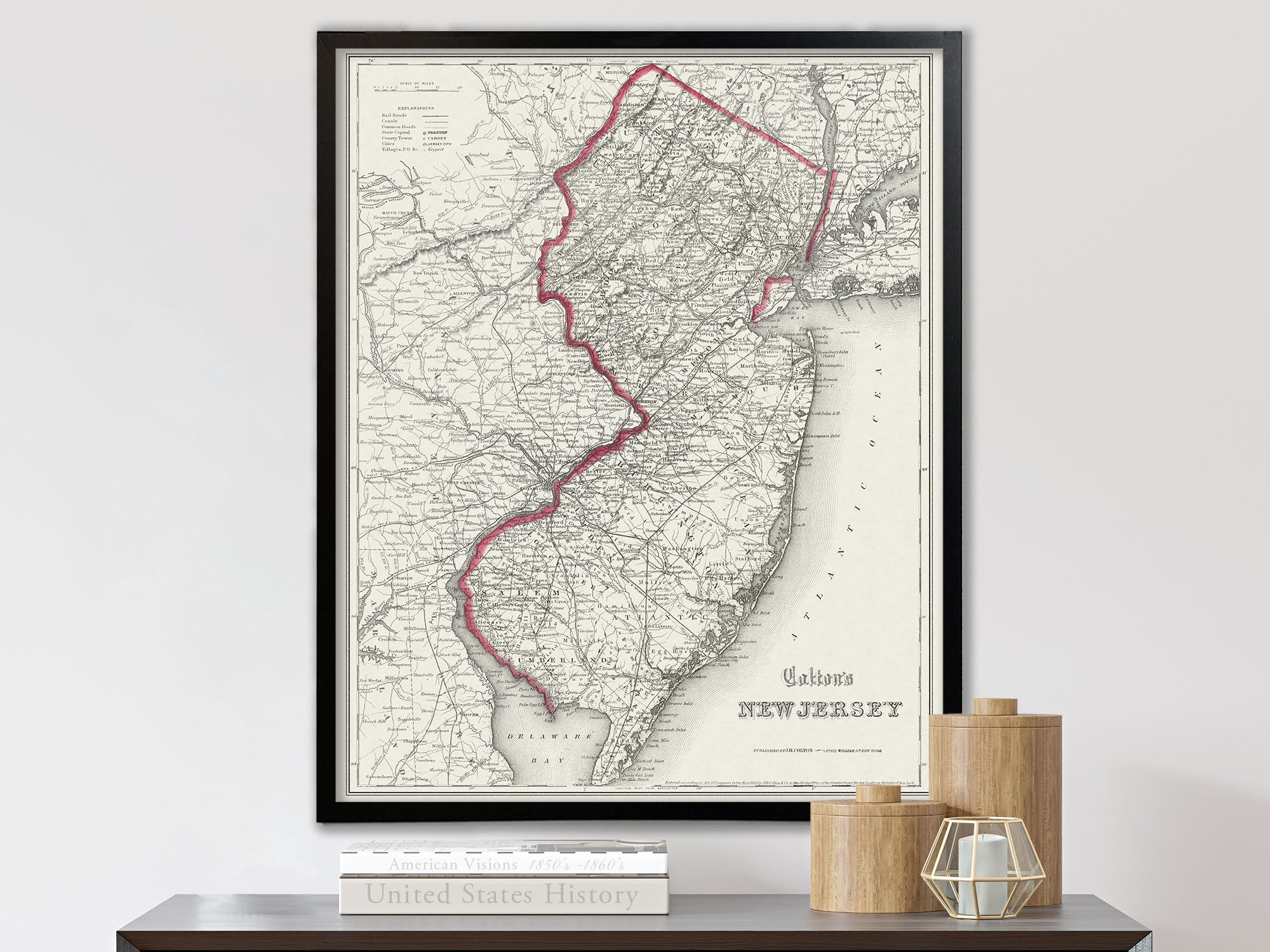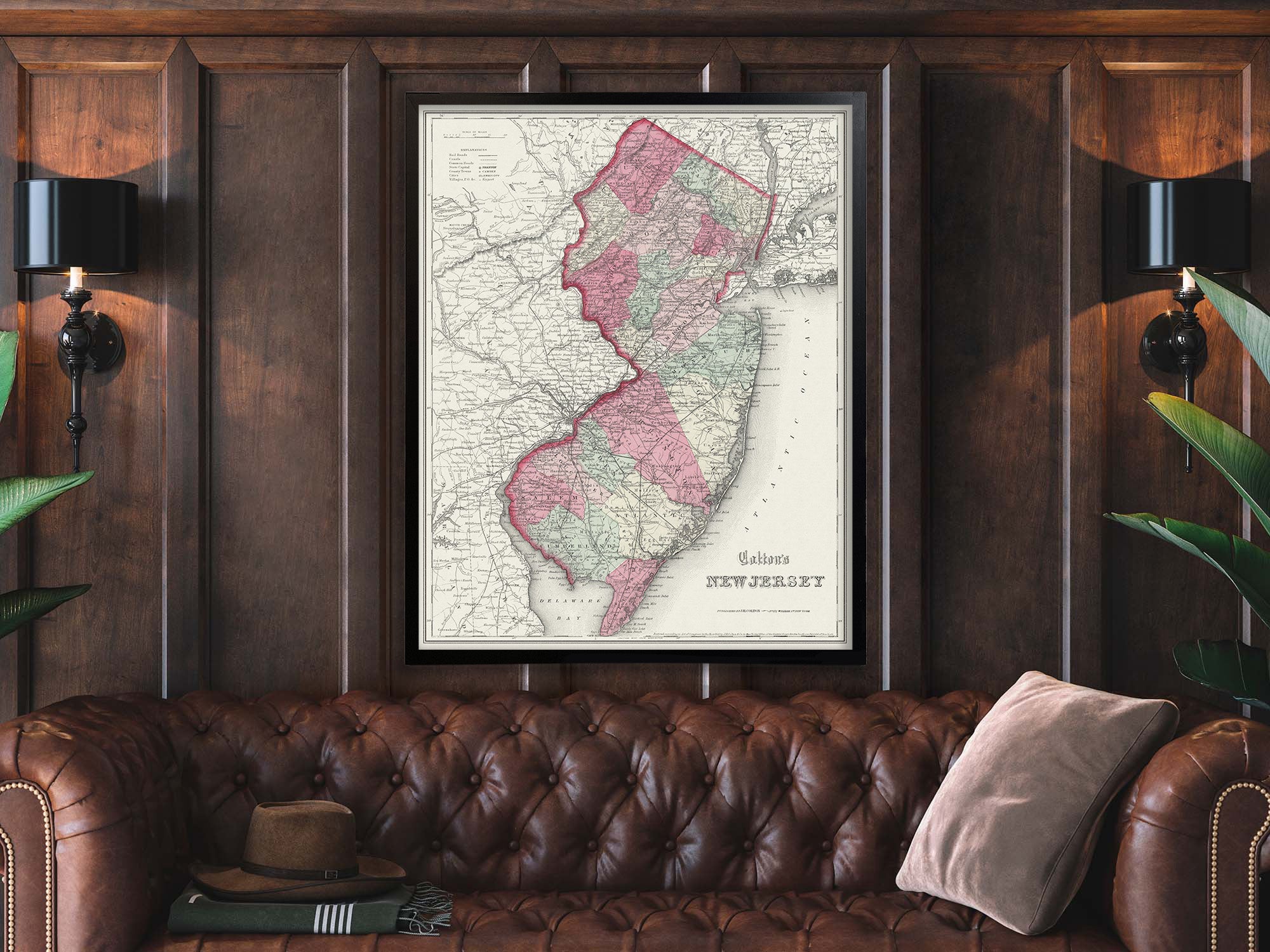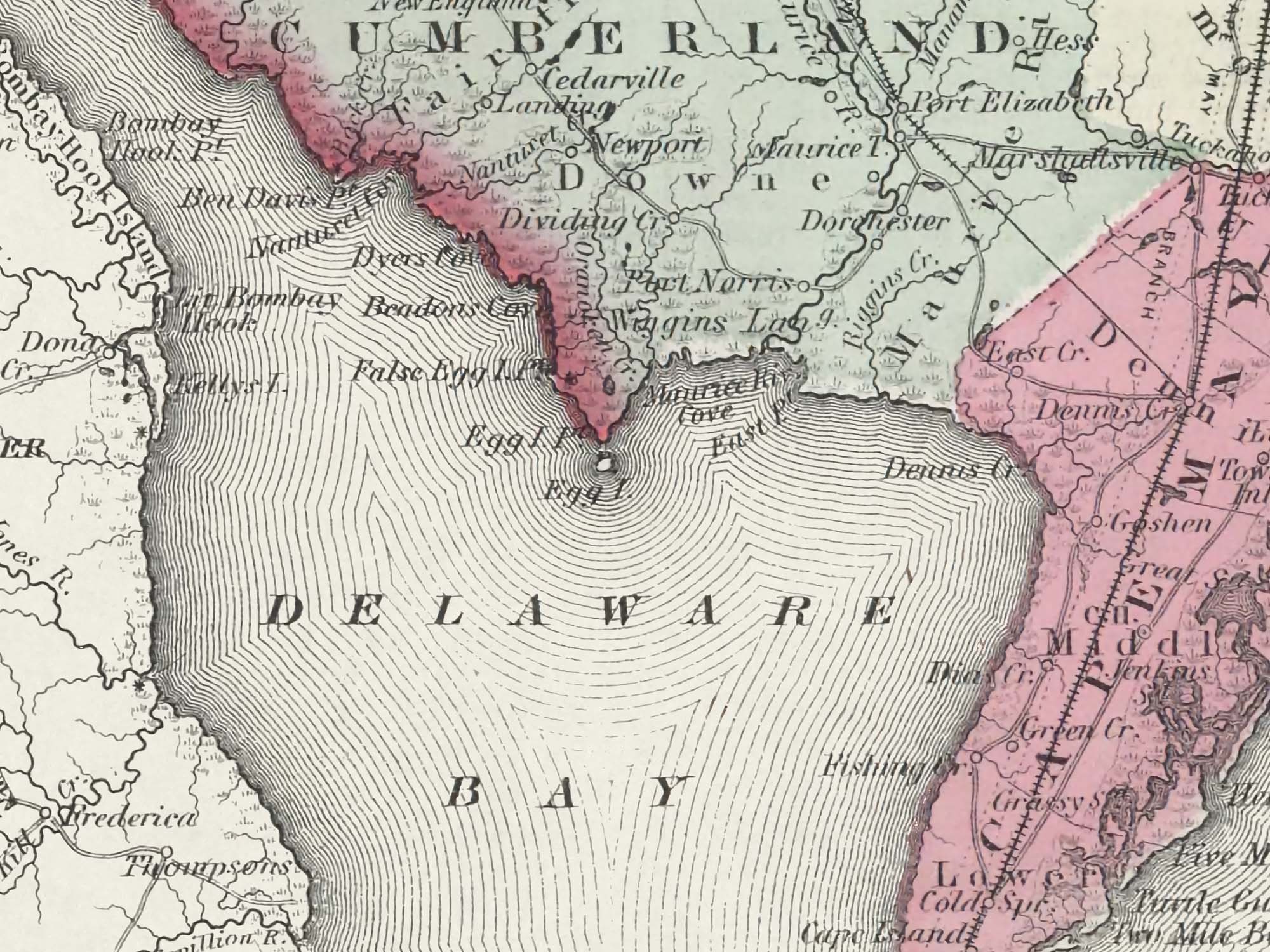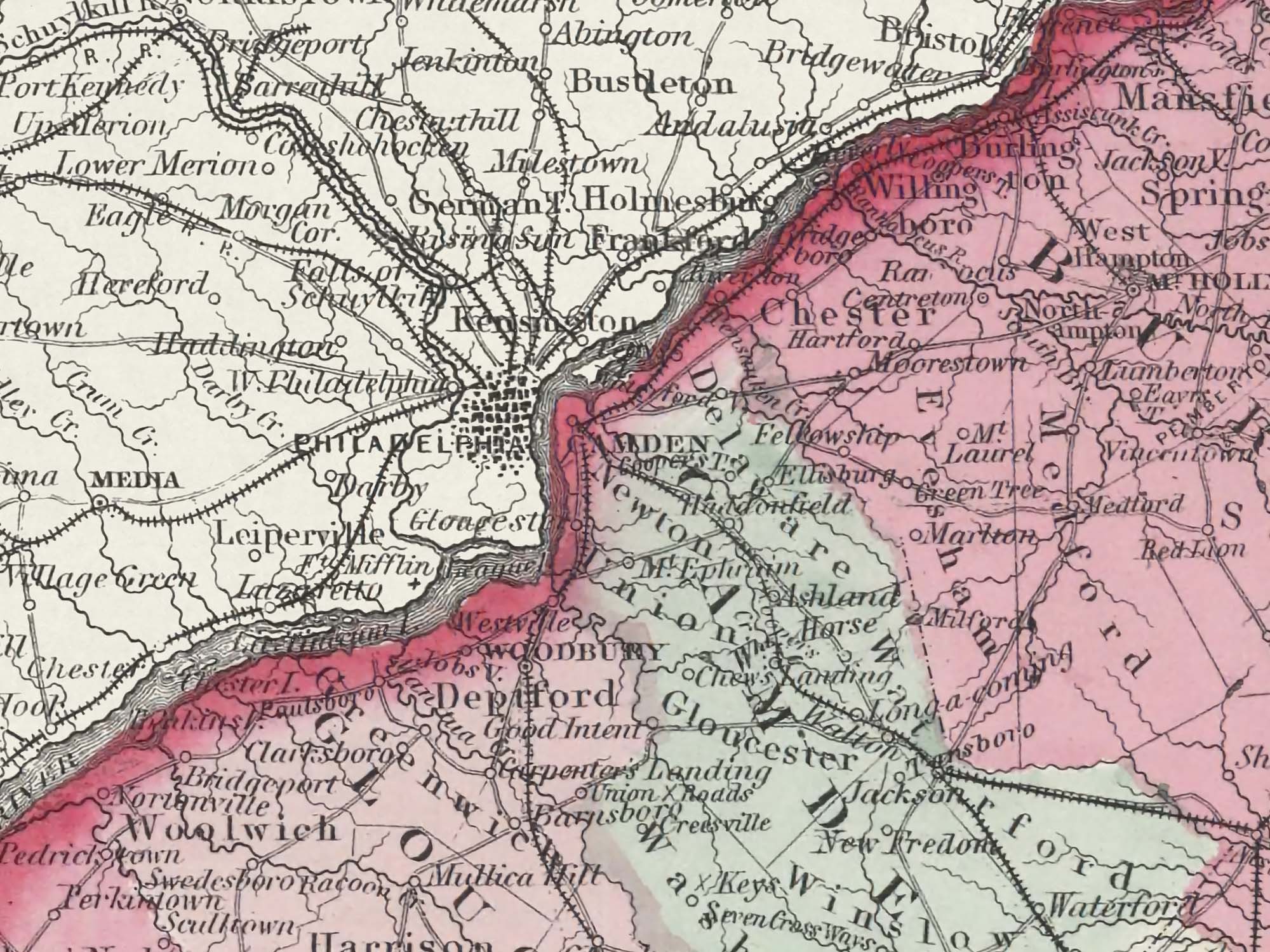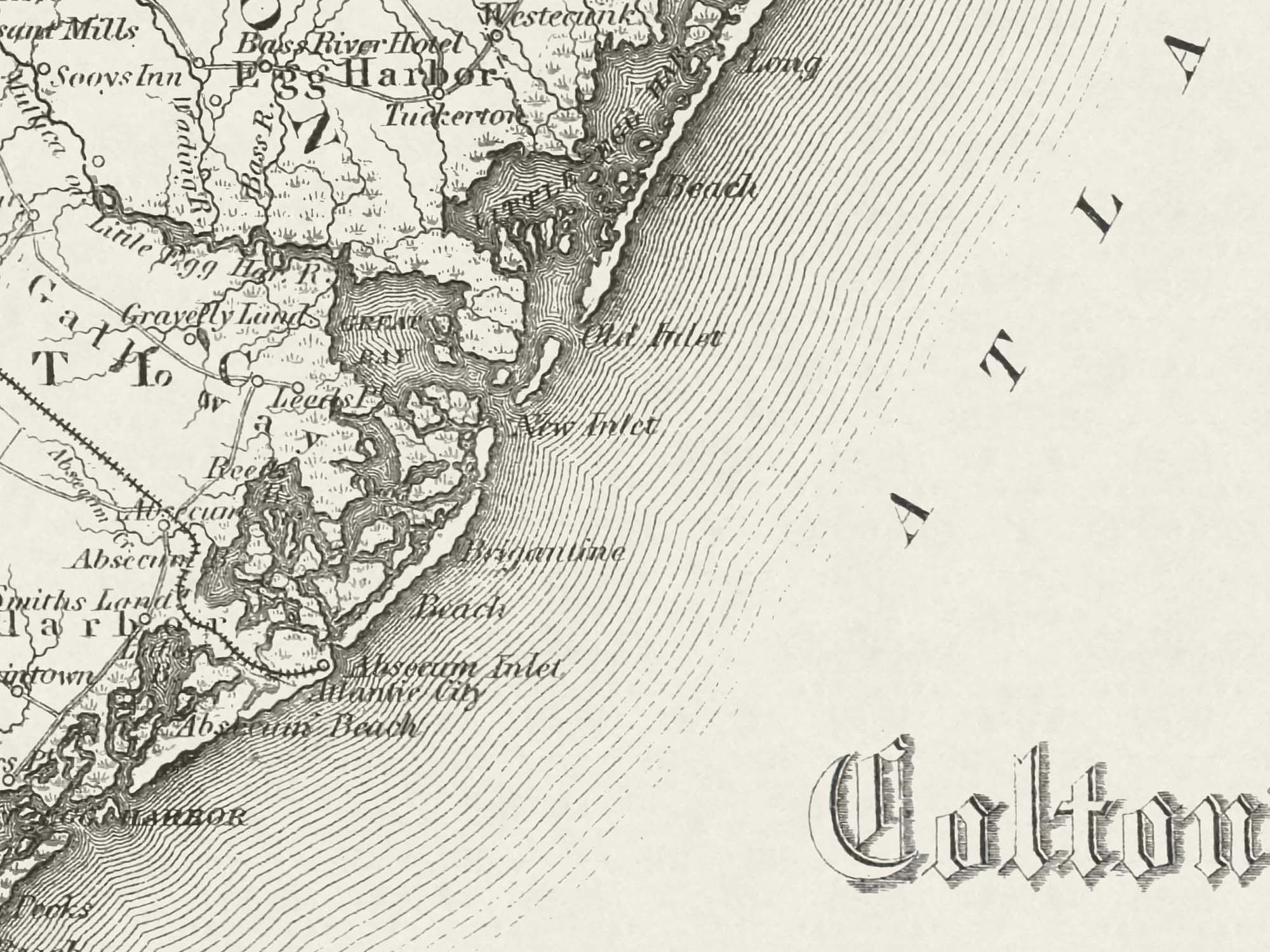This map is a faithful reproduction of the original 1850 map restored to its former glory using the latest digital imaging technology.
Historic New Jersey Map
Standard maps will enter production right away, within the next business day. Larger orders may take more time.
All push pin board maps (framed or canvas wrap) include push pins, are easy to hang, and ship free in the continental US. We'll select the optimal shipping method for fast delivery.
For personalized maps we collaborate closely to guarantee satisfaction. Expect a proof to be sent to you. Your swift responses will facilitate the production and shipping process.
If there are any problems with your map we will take care of you. Returns for all maps are straightforward and hassle-free.
For personalized maps, engaging with the email proofs we send ensures that the final product meets your expectations precisely.
We have 30+ years of cartography experience, meticulously craft each order by hand to ensure excellence, and 100% guarantee your satisfaction. We produce maps that are built to last, with state of the art production and archival quality materials.
Customize with quotes, legends, or dedications using "Personalize Map" options to craft your masterpiece map. Or reach out to us if you don't see the option you want.
We collaborate with you from design to approval of your proof so that you are 100% happy before we print and ship.
Our excellent customer service is always open to you.
Restored 1850's Map
Fine Art Quality
Impressively produced with Archival Inks, Rich Color Depth, and clear and vivid labels. We use premium matte paper.
Expert Craftsmanship
We prepare the map using Fine Art Giclee production techniques. We roll the map in a sturdy tube for shipping to provide a crease-less piece of art.
Historic New Jersey Map
- Description
- Specs & Construction
About the Map: Explore the geographic history of the state of New Jersey in this historic map. This map is part of our vintage USA State Map Collection showing the geography of the states in the 1850-1860s and the time of the Civil War.
Restoration: The map is a reproduction of the original map meticulously restored to its former glory using the latest digital imaging technology. Using this technology, we carefully restored the colors, torn edges, creases, smeared writings and more. We enhanced features while keeping the original character and design of the map.
This map is unframed, sold as an art print. Frames are shown for illustration ONLY.
Geographic Details: This historic map shows many details of towns, roads, railroads, and waterways in the 19th century of the United States.
Shows historic cities such as Atlantic City, Newark, New Brunswick and more!
Explore the historic boundaries of the cities, counties, and states that have changed over the years. Discover physical changes in the geography - such as former lakes and canals used for transportation and agriculture.
Available Sizes: For an impressive display and maximum readability, choose the largest size available.
Smaller size prints make excellent wall art in groups. Please note that there is no guarantee that small text will be legible in print.
Great Gift For: Interior Designs, Teachers, History Buffs, Anniversaries, Birthdays, Friends, Family, and many more!
Production and Shipping Times: The amount of time it takes for your map to arrive depends on where you live and how fast you approve the proof if you’ve ordered a custom map. See Production & Shipping.
Quality and Guarantee: We stand behind our work and guarantee the construction and quality. Contact us if you have any problems with your map and we will coordinate to ensure you are very happy with your purchase.
Materials and Production: This reproduction is printed on Fine Art Museum Quality Paper with giclée inks. The thick paper is archival quality and acid-free with vivid color definition.
Paper details:
- 10 mil thick
- 230 gsm weight
- Museum Quality Matte finish
Made in the USA by a USA Small Business and Professional Geographer & Cartographer.
Shipped in a tube and rolled to eliminate creases.
Why choose GeoJango Maps
- We have a lifelong passion for maps, backed by 30+ years of cartography experience and Master's Degrees in Geographic Information Systems (GIS) from Penn State University and Environmental Science from the University of South Florida.
- Our incredible investment into the design of our maps results in unparalleled detail that matters: they will educate you, and grow with you as you travel the world and track your travels—where other maps miss the mark.
- We’ve built the leading map production studio in the USA and use exclusively USA-made materials. Each pin map is proudly crafted by hand, printed by us on the finest materials, mounted on museum-quality Gatorfoam, and carefully framed just for you.
History of the Time
The 1850s were a period of significant change, growth, and political realignment in the history of New Jersey. The state experienced economic development, cultural shifts, and political debates that reflected the broader trends and challenges of the era.
Economically, the 1850s marked a transition from a largely agrarian economy to one that was becoming more industrialized and urbanized. While agriculture remained an important sector, industries such as manufacturing and textiles were on the rise. Cities like Paterson and Camden saw the establishment of factories and mills, and the state's strategic location between major metropolitan areas like New York and Philadelphia contributed to trade and commerce.
Political changes and debates were also a defining aspect of New Jersey's history during the 1850s. The issue of slavery and its expansion into new territories fueled political divisions. The state's alignment with the Democratic Party was tested by the emergence of the Republican Party, which opposed the spread of slavery. As a free state with strong abolitionist sentiments, New Jersey's residents had varying views on the expansion of slavery, reflecting the broader tensions in the nation.
Cultural and social developments were also prominent during the 1850s. Education continued to be a priority for the state, with institutions like Rutgers University contributing to intellectual growth. The state's diverse population, including immigrants from various countries, added to the cultural fabric of New Jersey. The temperance movement gained traction, advocating for the prohibition of alcohol, and the women's rights movement began to gain momentum, as women activists worked toward greater rights and recognition.
As the 1850s came to a close, New Jersey was positioned to play a role in the events that would unfold in the following decade. The election of Abraham Lincoln as the 16th President of the United States in 1860 set off a chain of events that would lead to the secession of southern states and the outbreak of the Civil War. New Jersey's alignment with the Republican Party's antislavery stance and its contributions to the Union war effort showcased its role in shaping the nation's history.
In conclusion, the 1850s were a transformative period for New Jersey, characterized by economic growth, political realignment, and cultural shifts. The state's transition to industrialization, its alignment with antislavery principles, and its contributions to the Civil War effort highlighted its evolving identity and influence within the broader narrative of American history.











